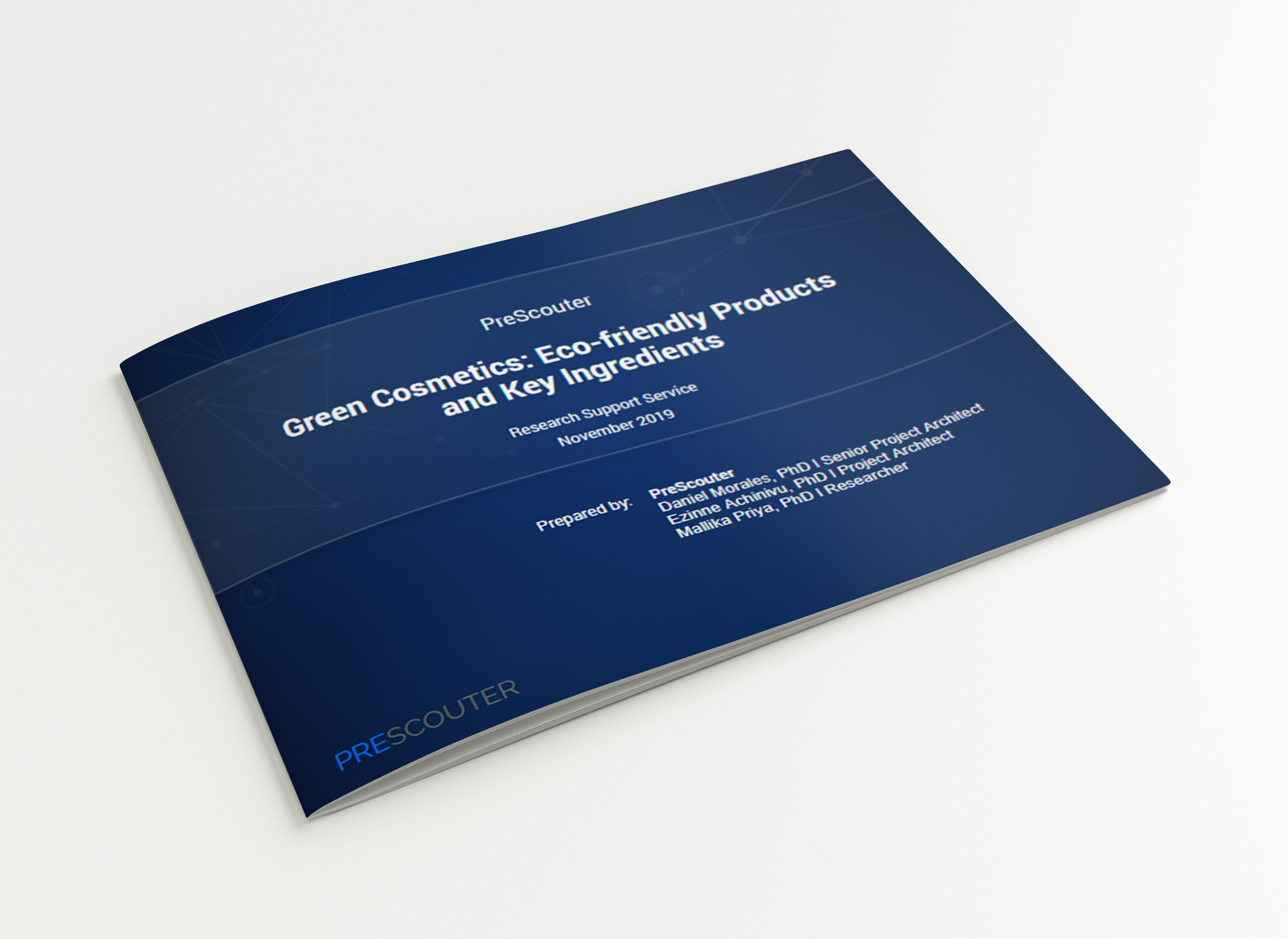Report Highlights:
With increasing general public interest and legislation driving the megatrend of sustainability, key cosmetic manufacturers and emerging startups are continuing to innovate their products lines with environmentally-friendly ingredients and increasingly transparent practices. Eco-friendly cosmetics have extended beyond niche trends and can impart benefits for the consumer, producer and the planet simultaneously, such as enhanced brand reputation, lower toxicity, and improved product quality. Increasing numbers of studies have educated the public regarding the toxicity of conventional cosmetics, and the sustainable cosmetics market continues to grow rapidly and consistently.
PreScouter investigated the space of eco-friendly cosmetics in order to understand the different types of classifications, product offerings, and associated ingredients utilized through examples of commercially available products.
Key Findings:
- We identified and characterized 58 product lines from leading cosmetic companies and emerging players who are promoting cosmetic products that are marketed under the following eco-friendly categories: Naturally Sourced, Organic, Vegan, Cruelty-Free, Biobased, Recyclable Packaging, Biodegradable, Fair Trade, Other (lean manufacturing, charitable causes, etc.).
- Currently, the space is dominated by cosmetic companies embracing vegan and/or cruelty-free products and promoting that their products do not contain parabens, synthetic surfactants such as sulfates, essential oils, drying alcohols, silicones, synthetic sunscreens, and fragrances/dyes (depending on the end-use application). Opportunities exist for further differentiation by creating biodegradable formulations and utilizing ingredients from renewable plant and bacteria sources.

- Another important aspect of the sustainable cosmetics space is the use of recycled packaging or the ability to return packaging to be recycled. However, the use of recycled by-products as initial ingredients for cosmetics has yet to emerge as a prominent technology.
- The main perceived benefits for consumers include lessening the ecological impact on the environment and reducing the undesired effects controversial ingredients have on our health.








